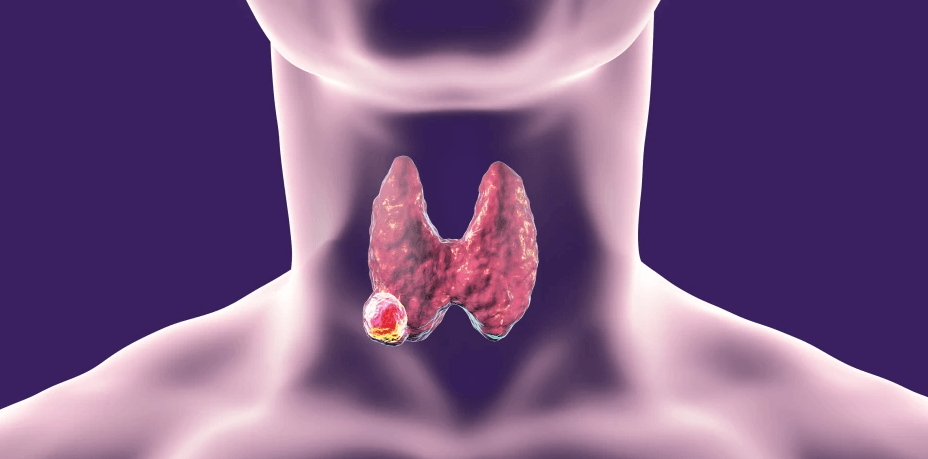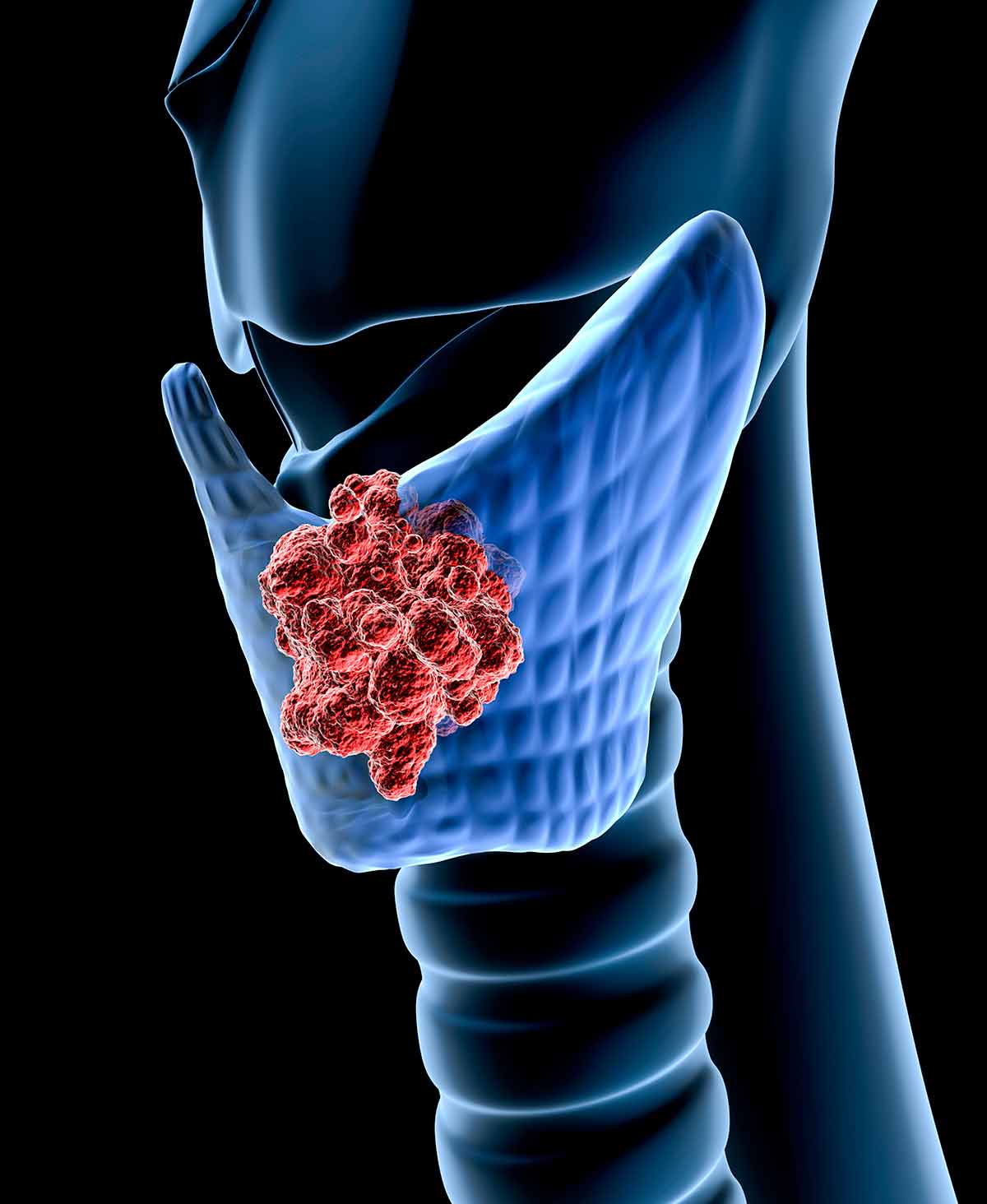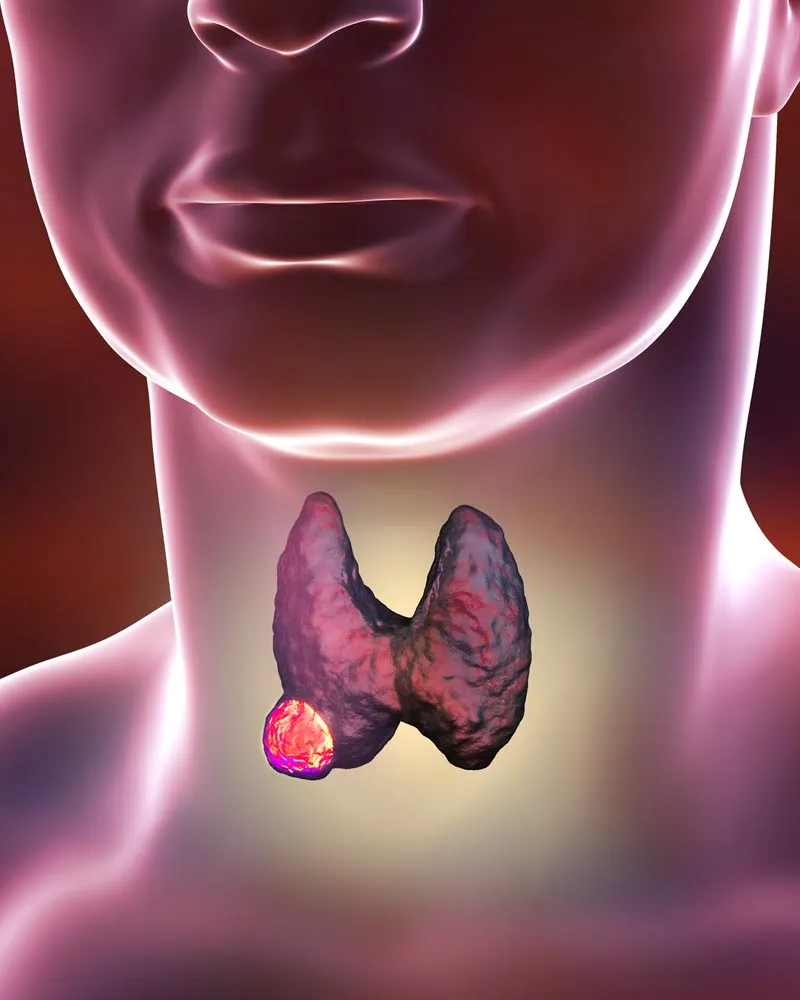Thyroid Cancer
At North Houston Cancer Clinics, we provide expert thyroid cancer diagnosis and personalized treatment. We understand that every patient is unique, so our team focuses on compassionate care, clear communication, and the most effective treatment options available
What Is Thyroid Cancer ?
Thyroid cancer starts in the thyroid gland, a small, butterfly-shaped gland located in the front of your neck. This gland plays an important role in controlling your metabolism, energy level, heart rate, and body temperature.
Normally, thyroid cells grow and divide in a controlled way. Thyroid cancer happens when these cells begin to grow and multiply abnormally. Over time, they can form a lump (nodule) and, in some cases, may spread to nearby lymph nodes or other parts of the body.
The good news is that most types of thyroid cancer grow slowly and are highly treatable, especially when found early. Many people live long, healthy lives after treatment. Even advanced cases can often be managed with modern therapies.
Thyroid cancer is not always easy to detect on your own, which is why paying attention to symptoms and getting proper evaluation is important. If caught early, treatment is often simpler and more effective.
At North Houston Cancer Clinics, we specialize in diagnosing thyroid cancer accurately and creating a personalized treatment plan to give you the best outcome while supporting you every step of the way.

Treatments and Diagnosis Of Thyroid Cancer
Thyroid cancer diagnosis
Thyroid cancer commonly initiates gradually without any evident sign, although some individuals experience some more signs. Those signs include a pain-free piece in the neck area that may increase slowly, problem inflammation and discomfort in inhaling and exhaling, and an unpleasant voice like dysphonia. Inflammatory glands between the head and shoulder may increase gradually in a few years.
Thyroid cancer, a commonly recognized type of cancer, often manifests as painless growths in the area between the head and shoulders, known as the neck, affecting approximately 90% of individuals.
Thyroid Cancer Treatment
In this present world, one can find various ways of medications for individuals suffering from this disease. Some standard options are surgical intervention, irradiations, chemo, and thyroid medications.
Types Of Thyroid Cancer
An individual is diagnosed with the type of thyroid cancer when a small portion of gland tissue is examined under a camera.
The following are the types of Thyroid cancer:
Differentiated thyroid cancers
It is a comprehensive disease that initiates inside the microbes that build and accumulate the thyroid hormones. These microbes are also known as thyrocytes. Various thyroid microbes look almost identical to healthy microbes in the eye of the Camera Lucida
Papillary thyroid cancer
This disease comes in a common category, originating in one part of the ductless gland.
Follicular thyroid cancer
This category usually affects individuals over 50. It does not expand into the gland area of the human body. However, some other categories of massive cancers grow in the body’s different organs. It usually develops in the lower part and the lungs.
Hurthle Cancer
It is an infrequent category of cancer, but it is currently known as a category of cancer. It’s because the microbes present in this disease act and respond differently. These disease cells are very fierce and can get bigger in human organs.


Prevention From Thyroid Cancer
We cannot exclude all the risk elements of this cancer, but If one incorporates some habits in the way of living, this will help to decrease the threat of cancer
- Stay away from unwanted radioactive rays because this is a significant threat to this disease; restricting the X-rays or CT scans is important to stay safe from thyroid disease.
- Keep control of body weight because this factor connects with the risk of this disease.
- Physical activity, such as walking, jogging, or exercising daily, helps keep your body healthy and fit. If an individual keeps their body healthy and fit, there are very few chances of being affected by cancer or other diseases.
- Good Sleep helps with weight management and controls the hunger hormone, indirectly keeping the body’s weight routine.
Causes and Risk Factors of Thyroid Cancer
- Genetic changes (mutations)
Some thyroid cancers are linked to changes in the genes of thyroid cells. These changes can happen randomly or be inherited from family members, especially in medullary thyroid cancer. - Family history
Having a close relative (parent, sibling, or child) with thyroid cancer increases the risk. - Radiation exposure
Radiation to the head or neck during childhood—either from medical treatment or environmental exposure—can damage thyroid cells and raise the risk of cancer later in life. - Being female
Thyroid cancer occurs more often in women, especially between ages 20–55, likely due to hormonal influences. - Age
Most cases occur in adults, especially over age 40. - Obesity and diet
Being overweight increases risk. A healthy, balanced diet supports thyroid health, but no specific food alone causes thyroid cancer.
Types of cancer we treat in North Houston Cancer Clinics
Frequently Asked Question
Generally, the symptoms related to thyroid complications slightly differ. They may take the form of hypothyroidism (thyroid producing minimal hormone) or hyperthyroidism (thyroid producing too much hormone). The signs often include sudden changes in weight, mood changes, alterations in energy level, irregular heartbeat, and changes in temperature sensitivity.
Thyroid function is usually assessed by three hormones: TSH (thyroid-stimulating hormone), triiodothyronine (T3), and thyroxine (T4).
These may include the following tests to determine whether the thyroid is functioning normally: your doctor may also advise imaging tests or a thyroid ultrasound to examine the size, shape, and presence of nodules in your thyroid.
Yes, untreated diseases of the thyroid can be the cause of severe health problems, such as diseases of the circulatory system, osteoporosis, and even infertility. Severe hypothyroidism may result in the occurrence of life-threatening conditions known as myxedema coma. In contrast, untreated hyperthyroidism can lead to a sudden worsening of its symptoms, even causing heart failure, which is known as a thyroid storm.
